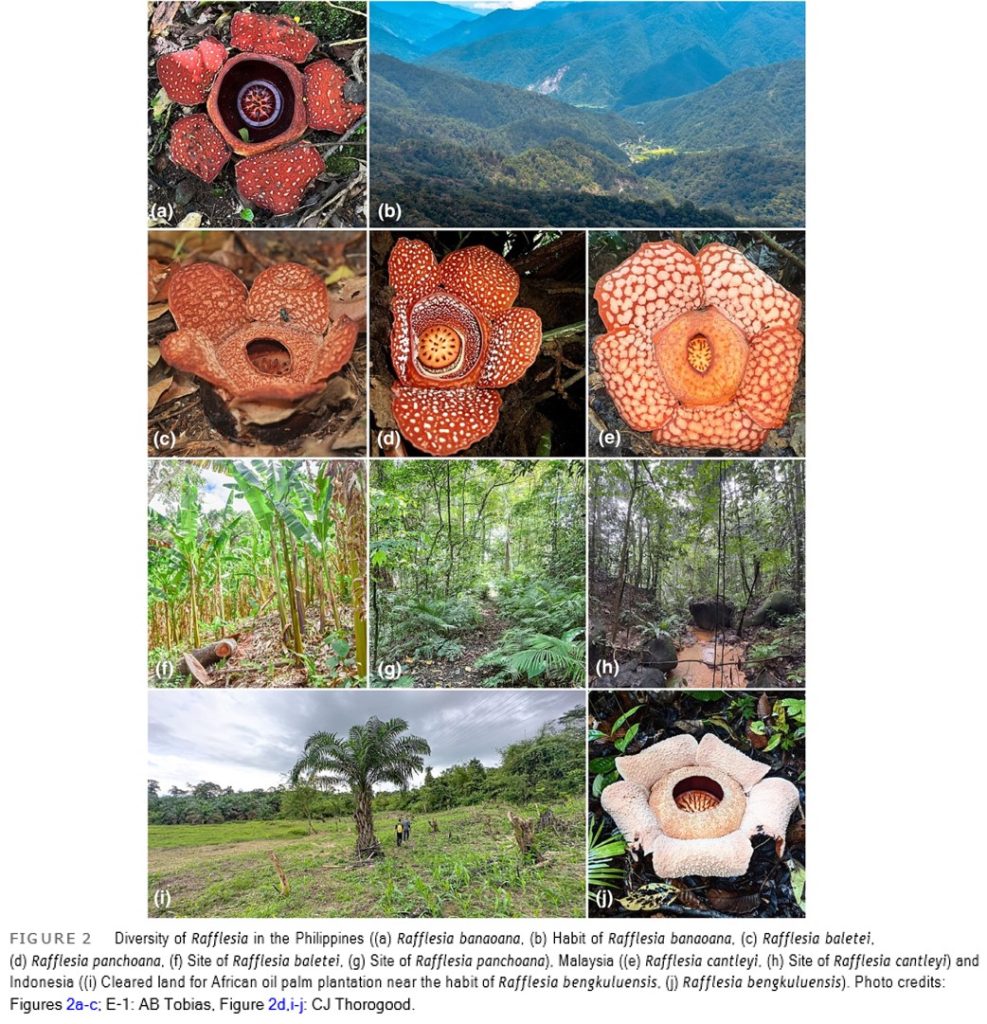
Prof. Agus Susatya, The Lecturer of the Department of Forestry University of Bengkulu, Published Latest Research on Rafflesia Conservation Efforts.
Bengkulu, 3 November 2023 – Prof. Agus Susatya, a lecturer at the Department of Forestry, Bengkulu University, known as “Professor Rafflesia” because of his extraordinary contribution to the research and protection of the Rafflesia flower, has published his latest very important publication together with his colleagues from various well-known institutions, (Pastor Malabrigo Jr from Department of Forest Biology Sciences; Adriane B. Tobias from University of the Philippines Los Baños, Joko Witono and Sofi Mursidawati from BRIN-Indonesia, Mat Yunoh Siti-Munirah from FRIM Malaysia, Adhityo Wicaksono from Study Group of Bioinformatics, Synthetic Biology Indonesia, Reza Raihandhany from UGM, Sarah Edwards and Chris J. Thorogood University of Oxford, UK). The publication is entitled “Most of the world’s largest flowers (genus Rafflesia) are now on the brink of extinction.”
Rafflesia, the largest genus of flowers in the world, is now on the verge of extinction. These researchers have combined their knowledge and efforts to illuminate this problem. In the paper, the researchers outline their latest scientific findings and state that most Rafflesia flower species are currently at risk of extinction. They also provide case examples that demonstrate the success of conservation efforts, with an emphasis on the role of local communities.
The researchers stated that “we propose a multi-pronged conservation approach combining strengthened taxonomy, ex-situ propagation, ecotourism, and an extension of protected areas. We suggest action devolved to local communities and awareness campaigns linked to social media networks will be crucial outside of protected jurisdictions. Finally, we propose to establish Rafflesia as a new icon for plant conservation in the Asian tropics. A combined approach might just save some of the world’s most remarkable flowers, most of which are now on the brink of being lost. This research provides a deeper understanding of the threats to the Rafflesia flower and provides concrete direction for steps that can be taken to protect this unique and valuable species”.
The researchers also clearly said that they recommended a greater role could be played by the University of Bengkulu, IPB Agriculture University, and the National Research and Innovation Agency (BRIN) to assist the groups of Pokdarwis also occur in Malaysia. Pokdarwis consist of groups of young villagers who are passionate about natural history and linked to potential revenue from ecotourism, and Community Care Puspa Langka Rejang Lebong (KPPL) is a network of 11 local Pokdarwis across Bengkulu, because they connect to share best practices and promote blooming events to increase awareness and boost ecotourism.





